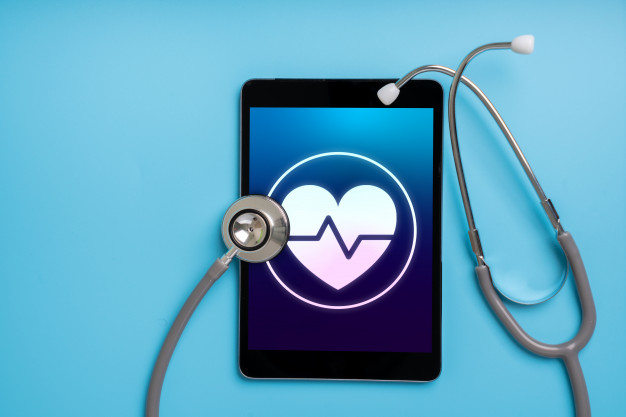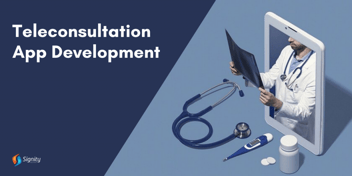“Health is wealth” is not just a saying our parents had taught when we were little kids. Today with rising health concerns and the outbreak of calamities like Ebola and Coronavirus, it has become a grim reality.
Diseases are increasing at an alarming rate. Millions of people are losing their lives, and billions are being spent on healthcare.
According to stats, the digital healthcare industry has reached the worth of $206 billion, which is about a 40% increase in the year 2018 revenue of $122.66 billion.
But there is a popular saying: “There is always a ray of hope even when it seems there is no hope around.”
Despite the alarming rates of health calamities, the increasing number of diseases, and the risk to lives – the healthcare industry is still advancing. We are still getting to see new trends in the healthcare industry that are changing the way we diagnose and treat diseases and help people live longer.
One such trend is Predictive Analytics in Healthcare which has emerged as a beacon of hope in the healthcare sector.
In this blog, we’ll talk about it in detail.
What is Predictive Analytics?
Given the seriousness of the recent novel Coronavirus outbreak, you might have wondered:
“Wish we had a superpower that could allow us to predict a disease even before it occurs. We could save many lives this way.”
Predictive analytics is what gives you that superpower. By using many techniques like machine learning, artificial intelligence, data mining, statistics, and modeling – we analyze current data to make predictions.
As mentioned in a blog on Rock Health:
“Predictive analytics is not reinventing the wheel. It’s about applying what doctors have been doing for years on a large scale.” We have already been using predictive analytics in various sectors like finance, IT, management, and security. But now after seeing its effectiveness, we have started using the trend in the healthcare sector as well.
What we are doing here is to learn from historical data so that we can predict diseases and take necessary measures in advance.
How do we collect data for predictive analytics?
With the help of smart sensors and intelligently capturing the information about the lifestyle of patients. We can use healthcare mobile apps, smart home devices, and wellness sensors to track their every moment. The medical reports and the medical history of the patients can also provide you with enough information.
How will predictive analytics revolutionize the healthcare industry?
- Increased accuracy of diagnoses
- Disease prevention and better public health
- Physicians get the answer they are looking for
- Reduction in healthcare costs
1. Increased accuracy of diagnoses
Predictive analytics in the healthcare industry can help doctors make a more accurate diagnosis of diseases. For example: When a patient comes to the hospital with chest pain, it becomes difficult to find the root cause and decide whether he/she should be hospitalized or not.
Chances are it’s just normal chest pain due to gastric. There is even a possibility of a serious condition like a heart attack. Even the normal diagnosis may take hours.
But with the help of predictive analytics, we can significantly reduce the diagnosis time. Since medical history already knows we can easily predict whether the patient is suffering from a heart attack or just normal chest pain and immediately offer the relevant assistance.
2. Disease prevention and better public health
We can use predictive analytics to prevent and ameliorate many diseases. Using the technique, primary care physicians can identify at-risk patients on time and give them the necessary treatments. They can even suggest patients avoid situations that may trigger the disease and make lifestyle changes to avoid risks. This can prevent many people from getting sick and improve overall public health.
3. Physicians get the answer they are looking for
One of the reasons doctors fail to treat patients on time is that they struggle to know what works best for them. Medicine can work effectively for one person, while not so suitable for another.
Predictive analytics can prevent this confusion and help you decide what can be the best treatment for a particular patient based on his/her medical history. This ultimately leads to more effective treatment and better healthcare.
4. Reduction in healthcare costs
Timely diagnosis can help in curing patients on time. Also, pandemics can be prevented from spreading when they are found early on and we can take protective measures. This ultimately reduces the cost of healthcare and diagnosis.
How far predictive analytics has come in Healthcare?
The trend of predictive analytics is slowly picking up pace in the healthcare sector. Doctors have started using the trend to diagnose many patients and prevent diseases from spreading.
Due to its effectiveness, predictive analytics has also started gaining the attention of investors who have started pouring billions into companies that are going to use predictive analytics.
Here are some interesting stats from a report I have gathered from a report called 2019 Predictive Analytics in Healthcare Trend Forecast by the Society of Actuaries (SOA):
Stats:
- Predictive analytics adoption has increased by 13% over the last year (Adoption rate in 2018: 47%, Adoption rate in 2019: 60%)
- Both the predictive analytics service providers and buyers agree that it’s important for healthcare
- Over the next 5 years, 60% of organizations will increase their budget for predictive analytics by 15%
Also, if we believe the following starts from the same report, we have been able to achieve our desired outcome from predictive analytics in healthcare up to a major extent. Look for yourself:
So, you can see how popular predictive analytics is going to be in the healthcare sector. We are not far from the day when we will get to see diseases getting cured early and people getting saved because they were diagnosed early on. This will save millions of lives and also reduce healthcare costs to a major extent.
Still, we believe that there is a long way to go. It’s just the beginning of the use of predictive analytics in the healthcare sector. There is a lot we have to learn and many milestones we have to achieve.
Conclusion
In simple words, taking predictive analytics in healthcare is going to be a major game-changer. But this should not stop us from believing that predictive analytics has the potential to change healthcare in a way no other technology has done. It has not stopped 60% of companies who are going to adopt predictive analytics in healthcare.
It has not stopped us even, the Signity Solutions. Knowing how promising predictive analytics can be in healthcare in the future, we have also working on AI, data science, and smart algorithms for creating smart health apps that can predict illness early on and keep track of your health stats - thus helping you live longer and healthier.
So, if you have an idea of a smart healthcare app making use of predictive analytics, contact us. We can help you in the best way possible.


%201-1.webp?width=148&height=74&name=our%20work%20(2)%201-1.webp)


.png?width=344&height=101&name=Mask%20group%20(5).png)

















